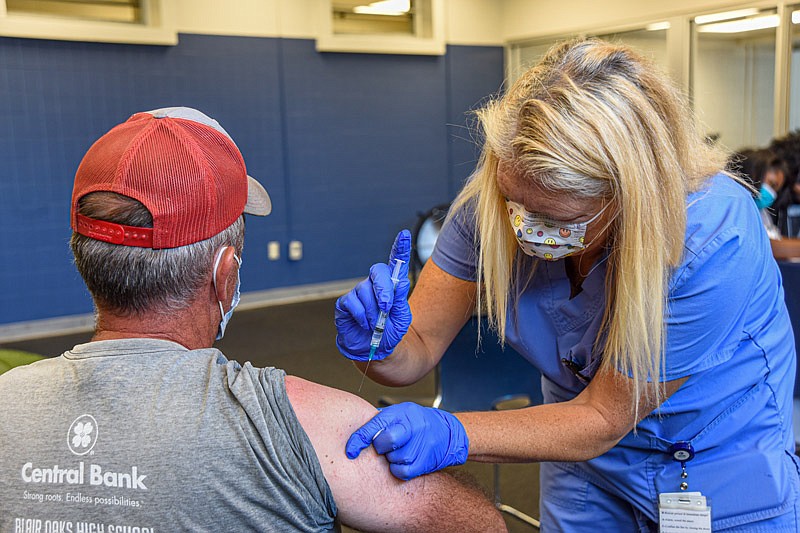More than 3 million Missourians have completed their COVID-19 vaccinations.
Gov. Mike Parson and the state Department of Health and Senior Services (DHSS) are giving a lot of the credit for an increase in vaccinations to MO VIP, the incentive program that rewarded people who received vaccinations through a lottery process.
The state has surpassed 66 percent of eligible residents having received at least one dose of vaccines, according to the Centers for Disease Control and Prevention.
Many of those vaccinations occurred while Missouri offered the lottery-based incentive program.
Through the program, the state awarded $10,000 each to 800 adults and $10,000 education savings accounts to each of 100 children ages 12-17 who received vaccinations. The state conducted five lottery drawings over the course of the incentive program. Drawings occurred every two weeks.
From July to October, during the program, 57,117 adults received at least their first vaccination against COVID-19, according to a Governor's Office news release. And more than 39,000 children initiated vaccinations.
More than 66,000 of those who received vaccinations during the period entered the lottery, DHSS communications director Lisa Cox said.
"We feel this is a great success considering vaccination not only impacts those 66,000 lives but also the lives of those around them," Cox told the newspaper in an email.
And while many local communities, pharmacies and health care providers are offering incentives, she continued, DHSS does not have another statewide incentive program planned at this time.
DHSS data show about 58 percent of Missourians who are eligible for COVID-19 vaccinations have now initiated the process, Cox said. And the state would love to see 100 percent vaccination rates.
"Herd immunity is a 'marker' for a point where immunity through vaccinations and prior infection exceeds a designated proportion of the population," she explained. "Because of the high infectivity of the Delta variant, waning immunity after infection, and changes in vaccine effectiveness over time, herd immunity isn't a goal that public health officials are using. "
She said the goal for the state is to get 100 percent of Missourians who can safely be vaccinated, to be fully vaccinated.
"This has been and will continue to be our best option for controlling COVID-19 and returning life to as normal as possible," she wrote.
About 480,000 Missourians initiated vaccinations since July 21, the day the incentive program began, the Governor's Office news release said.
The office pulls data from DHSS, but also from CDC, which has included more vaccinations because it can pull data from federal programs.
"We are proud of all our team members who helped make MO VIP a success, and more importantly, we appreciate the thousands of Missourians who are stepping up to protect themselves and their loved ones," Parson said in the release. "Our data clearly shows that vaccinations are making a difference and decreasing viral activity in Missouri. We are on the right track, and thanks to now 3 million Missourians, we are significantly reducing the threat COVID-19 poses to our state."
The number of daily cases reported in Missouri has fallen by about half since the COVID-19 delta variant broke out, the release said. Missouri was the first state to experience its rapid spread.
Outbreaks in long-term-care facilities have dropped. As of Thursday, there were 139 nursing homes in Missouri with active COVID-19 cases, down from 229 a month before.
Nursing facilities have - in part - avoided deadly outbreaks like those seen toward the end of 2020 and beginning of 2021 because of the preponderance of residents having received vaccinations. The DHSS website covidvaccine.mo.gov/data/ shows that of Missouri residents ages 65-74, 88.4 percent have initiated vaccinations and 80.9 percent have completed vaccinations; of those ages 75-84, 89.1 percent started, 81.9 percent completed; of ages 85-plus, 82.1 percent started and 74.4 percent completed.

